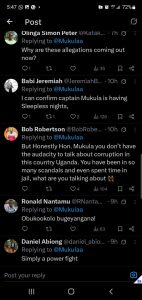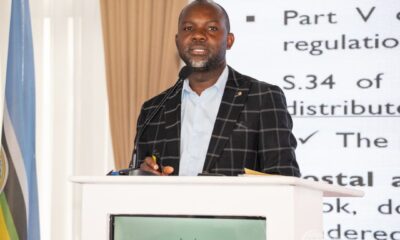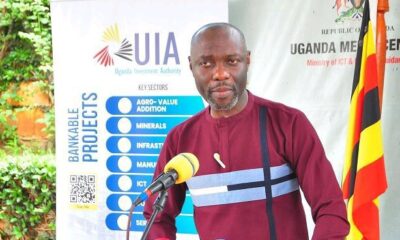National
“Next Time, Choose Your Battles More Wisely, You Can’t Be The Lord OF Corruption & Falsely Accuse Others” Ugandans Roast Mike Mukula On Twitter After False Corruption Allegations On Pilgrim Africa

When Mike Mukula took to Twitter with accusations of corruption against Pilgrim Africa, it seemed he was aiming to spark public outrage. But instead of fanning the flames, he found himself engulfed in them.
Rather than backing Mukula, Ugandans quickly turned the spotlight on him—with sharp criticism and zero restraint.
What he may have hoped would be a damaging revelation soon spiraled into a personal debacle. Social media lit up with users not only defending Pilgrim Africa but also fiercely questioning Mukula’s moral standing. “It’s shameful that you are sharing and posting this,” one person tweeted. Another didn’t hold back: “You have no audacity to talk about Pilgrim Africa. You’re the most corrupt and were even jailed.”
The backlash was swift and relentless.
Many saw deep irony in Mukula, a figure with a known history of corruption, accusing a respected NGO of misconduct. As his tweet made rounds, users dug up his past scandals and aired them out for all to see. Any credibility he hoped to wield vanished almost instantly.
The timing of his accusations added to the skepticism. Why bring this up now? For many, the answer was clear: political maneuvering. “Why now?” one commenter asked. “This is just a power play,” another concluded.
To the public, the motive behind the tweet seemed less about exposing wrongdoing and more about undermining a reputable organization.
But that plan fell flat.
Rather than casting doubt on Pilgrim Africa, the incident only amplified support for the NGO. People shared their appreciation for its work—fighting malaria, improving education, and supporting farmers. In contrast, Mukula became the target of jokes, memes, and advice urging him to either get off social media or focus on more constructive activities.
The message from Ugandans was unambiguous: Pilgrim Africa has earned their trust. Mukula has not.
In the end, what began as a calculated attack turned into a public reckoning. It was a vivid reminder that credibility matters—and once it’s lost, it’s hard to get back.
Ugandans made their voices heard. The internet did its thing. And Mike Mukula walked away with a harsh lesson in public accountability.
Next time, he might want to choose his targets more wisely—especially when they’re organizations that people believe in.




















